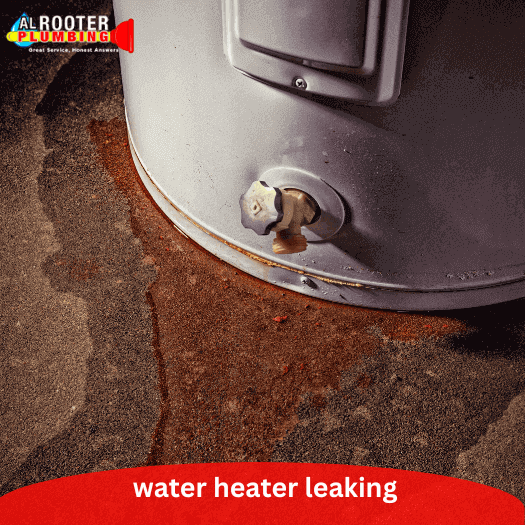Having a water heater leaking can lead to a range of issues, from water damage to the inconvenience of not having hot water when needed.
Understanding the causes and solutions for a water heater is leaking is essential for maintaining the functionality and safety of your home’s water heating system.
There are several reasons why a water heater may start leaking.
One possible cause is a leak from the top of the tank, which could indicate a problem with the inlet or outlet pipes or fittings.
Another common issue is water heater leaking from the bottom of the water heater.
This can be a sign of a corroded tank or a faulty temperature and pressure relief valve.
Additionally, a leaky water heater tank itself may be the source of the problem.
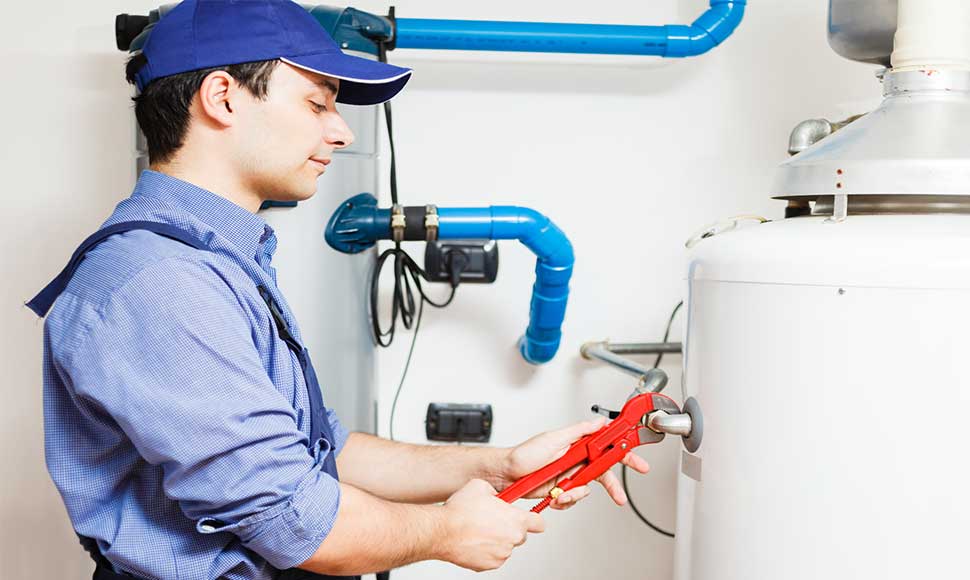
One common culprit for hot water heater leaks is a faulty pressure relief valve.
This valve is designed to release excess pressure to prevent tank rupture.
Over time, mineral buildup or a defective valve can lead to leaks. Regularly inspect and test this valve for optimal functionality.
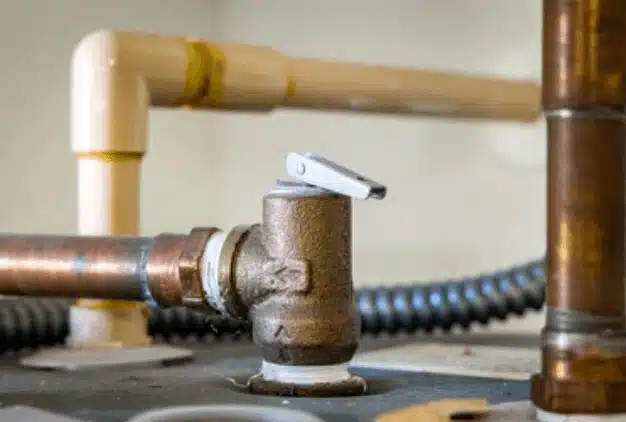
The interior of a hot water heater is exposed to constant water flow, making it susceptible to corrosion and rust.
Corroded tanks or connections can result in water seepage.
Implementing routine water heater maintenance, including flushing the tank to remove sediment, can mitigate the risk of corrosion.
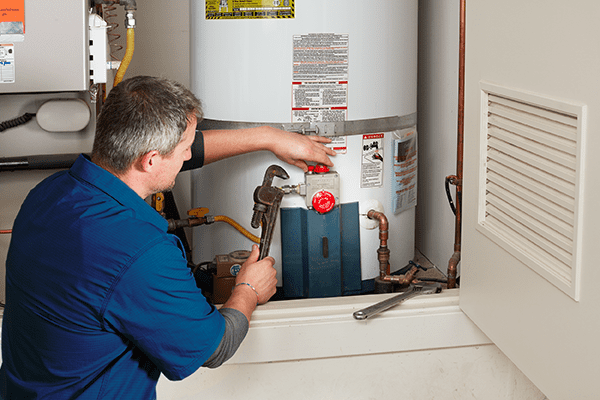
A damaged or improperly sealed drain valve is another potential source of leaks.
Ensure the valve is tightly closed and free from any visible damage.
If leakage persists, replacing the valve may be necessary.
Faulty Inlet or Outlet Connections
Check for visible signs of water around these connections and tighten them securely.
If any damage is detected, consider replacing the affected part promptly.
Valve Leakage
The temperature and pressure relief (TPR) valve, located at the top of the water heater, is designed to release excess pressure.
Elevated Temperature Settings
Excessively high temperature settings can cause the TPR valve to release water as a safety measure.
Adjust the temperature settings to a recommended level, usually around 120 degrees Fahrenheit, to prevent unnecessary pressure buildup.
Internal Tank Corrosion
Corrosion within the tank can compromise the integrity of the water heater, leading to leaks.
Regularly flush the tank to remove sediment, minimizing the risk of corrosion.
If corrosion is already present, consult with a professional plumber for an in-depth inspection and potential tank replacement.
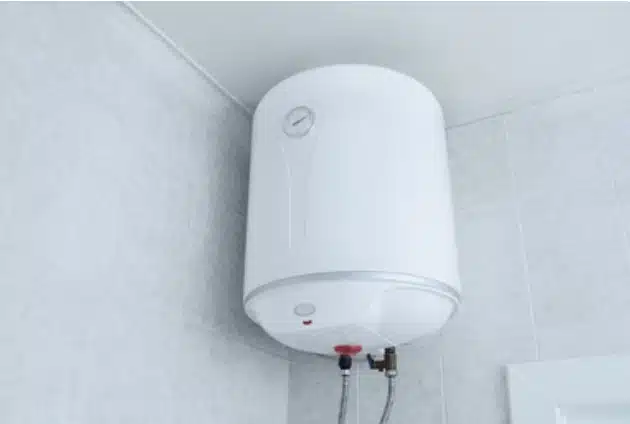
Leaking Pipe Connections
Check for visible signs of water around the pipes connected to the heater.
Tighten any loose connections and consider applying plumber’s tape to ensure a secure seal.
Pressure Relief Valve Dysfunction
Test the valve for proper functionality and replace it if signs of wear or malfunction are evident.
This simple fix can prevent unwanted leaks and ensure the safety of your water heating system.
Corroded Tank or Fittings
If corrosion is already present, consult with a professional plumber for a thorough inspection and potential replacement of corroded parts.

Identifying the source of a water heater leak is crucial in determining the appropriate solution.
Start by inspecting the tank and valves for any visible signs of water accumulation or corrosion.
Check the water supply and pressure relief valve for leaks or malfunctions that could be causing the water heater to leak.
By determining if the leak originates from the top or bottom of the water heater, you can narrow down the possible causes and take the necessary action to address the issue.
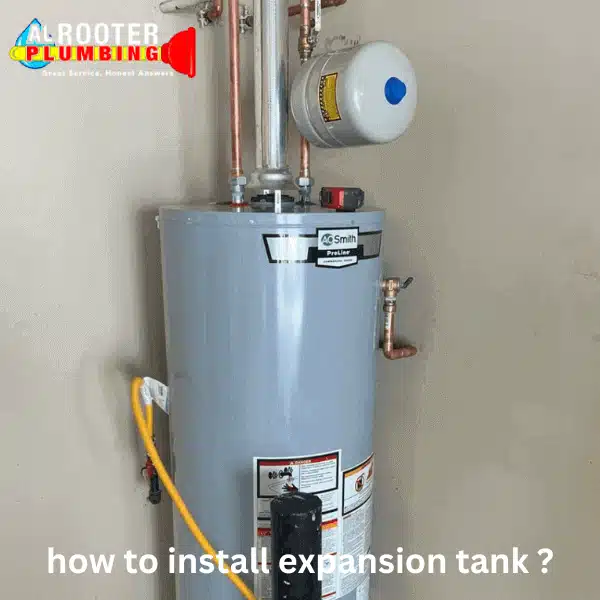
Leaks often occur at the connections between the water heater and pipes.
Apply plumber’s tape or use a pipe wrench to ensure a secure, watertight seal.
Regularly check and tighten connections to prevent future leaks.
As sediment accumulates at the bottom of the tank, it can lead to corrosion and leaks.
Create a routine schedule for flushing the tank to remove sediment and maintain the heater’s efficiency.
If the pressure relief valve is identified as the issue, consider replacing it with a new, high-quality valve.
This ensures proper pressure regulation and minimizes the risk of leaks.
Engage a professional plumber to conduct a thorough inspection of the tank and heating elements.
Timely identification of potential issues can prevent leaks and extend the lifespan of your hot water heater.
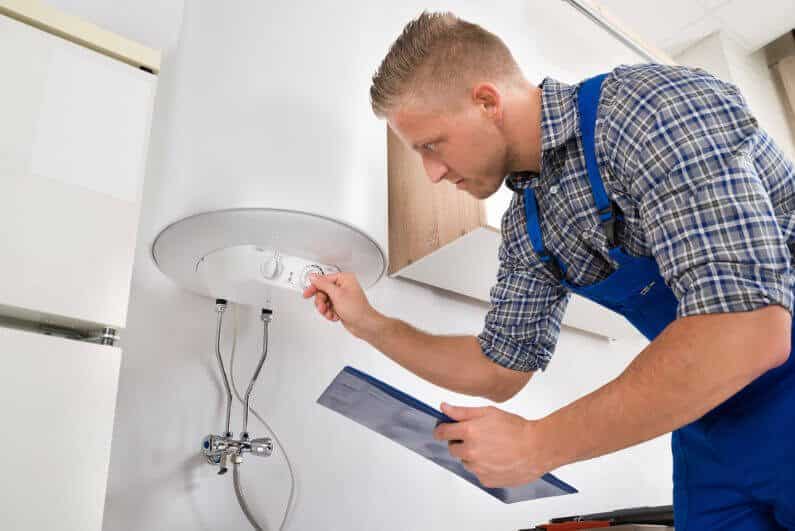
If you’re grappling with the frustrating issue of a water heater drain valve leaking, look no further than Al Rooter Plumbing for swift and reliable solutions.
A water heater drain valve leaking can lead to water wastage, potential damage to the surrounding area, and increased utility bills.
At Al Rooter Plumbing, our seasoned professionals specialize in diagnosing and rectifying such plumbing predicaments with precision.
A leaking water heater drain valve demands prompt attention to prevent further complications, and our expert team is well-equipped to address the issue efficiently.
Trust Al Rooter Plumbing to seamlessly resolve the inconvenience of a water heater drain valve leaking, ensuring your system operates flawlessly and your peace of mind is restored.
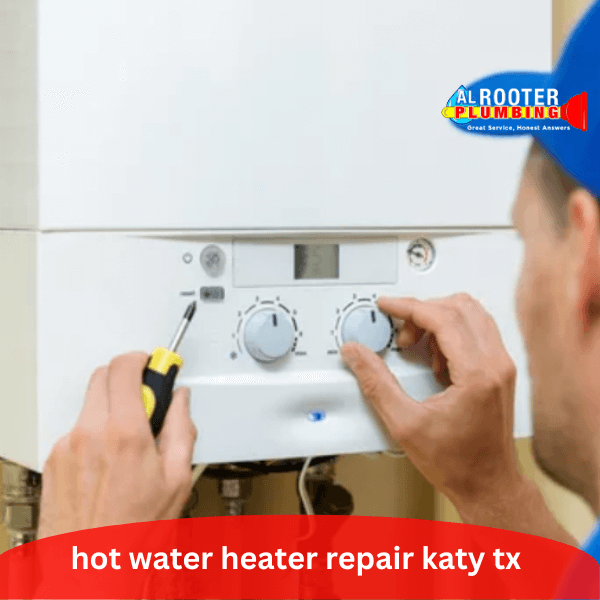
If you’re confronted with the distressing situation of a water heater tank leaking, Al Rooter Plumbing is your go-to source for prompt and effective solutions.
A water heater tank leaking can result in water damage, increased energy bills, and a compromised hot water supply.
At Al Rooter Plumbing, our dedicated team of experts is well-versed in identifying and resolving issues related to water heater tank leaks.
Whether it’s a minor drip or a more serious leak, our professionals are equipped to assess the damage and implement the necessary repairs efficiently.
Trust Al Rooter Plumbing to handle the challenge of a water heater tank leaking with expertise, ensuring the longevity and optimal performance of your system.
Regular maintenance of your water heater can significantly reduce the risk of leaks.
One important step is to perform regular drainage and flushing of the water heater to remove sediment and mineral buildup that can lead to corrosion and leaks.
It’s also crucial to monitor and replace faulty valves, such as the temperature and pressure relief valve, to ensure proper functionality and prevent leaks.
Additionally, adjusting the temperature and pressure relief valve to the recommended settings can help maintain the water heater’s efficiency and reduce the likelihood of leaks.
Read more: Don’t Ignore water heater popping sound -What You Should Do
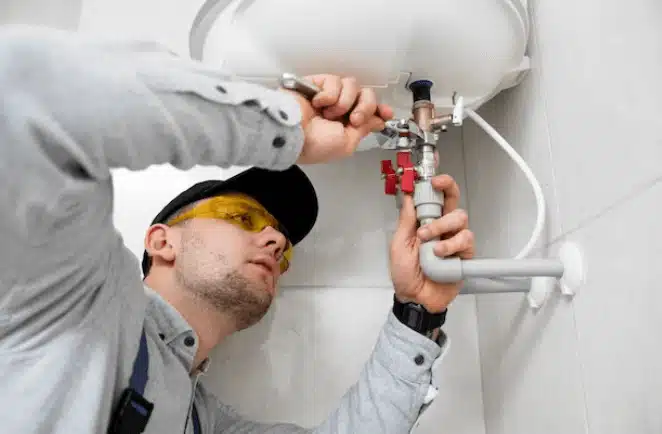
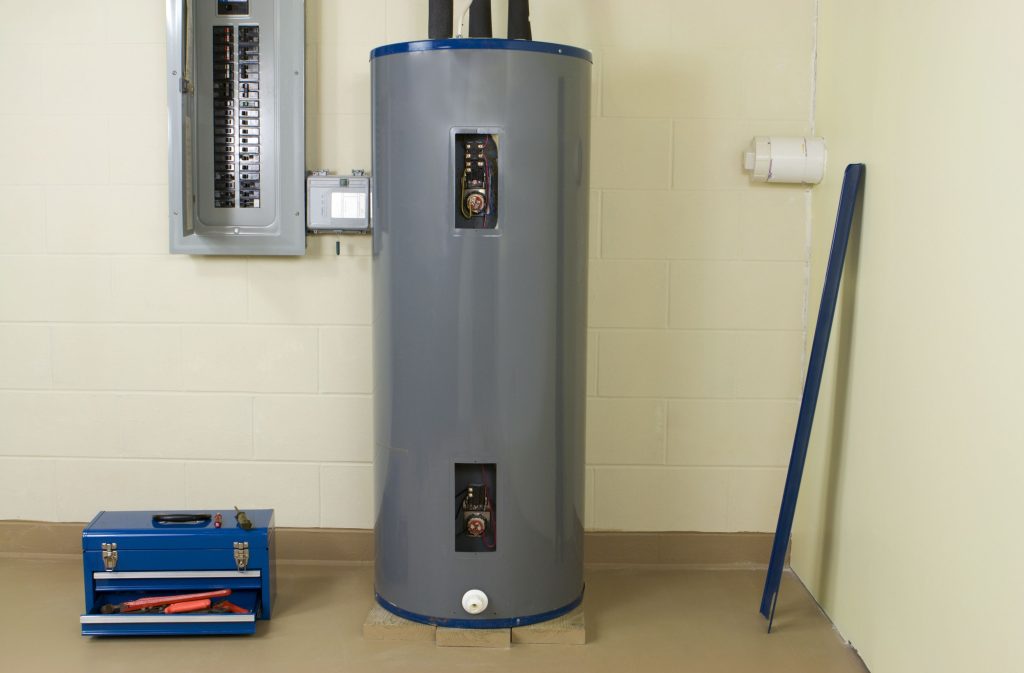
Dealing with a leaking electric water heater requires careful consideration of potential electric-related issues.
It’s important to identify any electrical malfunctions that may be contributing to the water heater leak and take appropriate safety measures in handling the situation.
Seeking professional electric water heater repairs can help address the root cause of the leak and ensure the safe and efficient operation of the water heater.
In the decision-making process of repairing or replacing your water heater, weighing factors such as age, repair costs, energy efficiency, and environmental impact is crucial.
A thorough assessment, coupled with professional insights, will empower you to make a decision.
| M | T | W | T | F | S | S |
|---|---|---|---|---|---|---|
| 1 | 2 | 3 | 4 | 5 | ||
| 6 | 7 | 8 | 9 | 10 | 11 | 12 |
| 13 | 14 | 15 | 16 | 17 | 18 | 19 |
| 20 | 21 | 22 | 23 | 24 | 25 | 26 |
| 27 | 28 | 29 | 30 | 31 | ||

